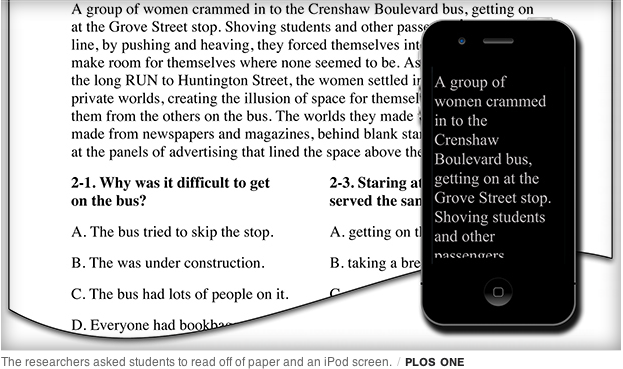Nowadays it seems like there’s an e-reader in almost every pocket or purse. You still see plenty of hardback and paperback books, of course, but e-books and the devices supporting them have been gaining popularity every year. Portability is a big factor. E-readers enable you to carry hundreds, or even thousands, of books with you wherever you go. It’s such a boon to avid readers that some schools have begun to require their students to carry iPads or other devices, significantly lightening young people’s backpacks and putting less strain on their bodies.
But it seems the benefits of using e-readers are not just physical. According to one study conducted by the Harvard-Smithsonian Center, the technology may help improve dyslexic individuals’ ability to read. The study’s findings were published on Thursday in the open-source journal PLOS One.
During the course of the study, 103 dyslexic high school students were asked to read passages from letter-sized paper with full lines of text, and from iPods configured to deliver just a few words per line. The students’ speed and comprehension improved when reading from the iPods. These findings corroborate previous research showing that shorter lines benefit the reading experience of individuals with dyslexia.
Researchers say they don’t believe the electronic format has much to do with the improvement, aside from the fact that the technology makes it much easier to customize reading materials. iPads, iPad Minis, and other e-readers were not included in the study. In fact, during a prior study that did include an iPad, subjects did not appear to find any benefit in speed or comprehension while reading from the device. However, it stands to reason that any device or application that allows users to adjust the number of words per line could help alleviate some of the frustration dyslexic users experience while trying to read, and most of the devices on the market allow such customization. This simple aspect of the technology could make reading accessible and pleasurable for many who currently struggle.
Tags: e-readers help dyslexia, dyslexic people read better with e-readers, dyslexia, e-reader, iPod, reading, learning disabilities, technology








